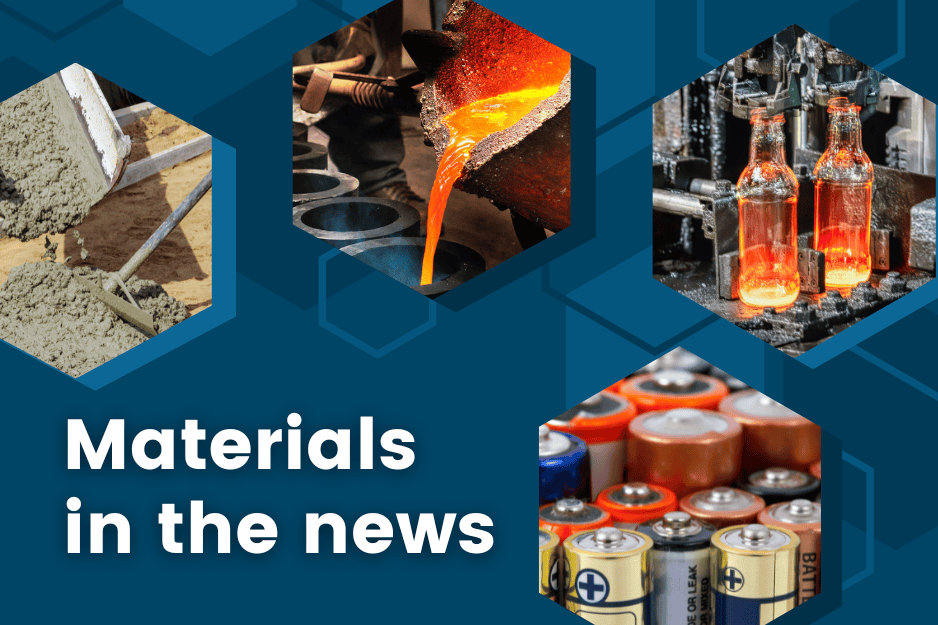
[Images above] Credit: NIST
NANOMATERIALS
Highly efficient charge-to-spin interconversion in graphene heterostructures
Korea Advanced Institute of Science and Technology physicists observed highly efficient charge-to-spin interconversion via the gate-tunable Rashba-Edelstien effect in graphene heterostructures, which paves the way to use graphene as an active spintronic component.
A simple way of describing friction—by making it complicated
Researchers from the Norwegian University of Science and Technology came up with an adjustment to the Prandtl-Tomlinson model that improves its ability to describe trends in how friction works for layered materials like graphene at the nanoscale.
ENERGY
A spreadable interlayer could make solid-state batteries more stable
Scientists at Chalmers University of Technology and Xi’an Jiaotong University developed an interlayer for solid-state batteries consisting of a soft, spreadable substance made of nanoparticles of the ceramic electrolyte LAGP mixed with an ionic liquid. The interlayer helps improve the current density tenfold while also increasing performance and safety.
A PV antenna for beaming solar power from space to Earth
Researchers from the U.S. Naval Research Laboratory launched a 12-inch square photovoltaic module that is expected to test the viability of space-based solar power systems converting sunlight to microwaves outside the atmosphere.
3D-printed system speeds up solar cell testing from hours to minutes
Monash University researchers developed a machine that can analyze 16 sample perovskite-based solar cells simultaneously, in parallel, dramatically speeding up the testing process. To achieve the high level of precision needed to build the system, they produced system parts using ultra-detailed milling and a 16-micrometer precision 3D printer.
BIOMATERIALS
Scientists test microscopic glass robots to target cancer cells
Scientists at the Max Planck Institute for Intelligent Systems developed tiny glass microparticles half-coated in a thin magnetic nanofilm made of gold and nickel to help shuttle medicines into hard-to-access regions inside the human body for more effective disease targeting.
ENVIRONMENT
Solar energy farms could offer second life for electric vehicle batteries
Massachusetts Institute of Technology researchers showed electric vehicle batteries could still have a useful and profitable second life as backup storage for grid-scale solar photovoltaic installations, where they could perform for more than a decade in this less demanding role.
MANUFACTURING
Machine-learning tool could help develop tougher materials
Massachusetts Institute of Technology researchers developed a new artificial intelligence-based system that predicts the way a material would break or fracture by analyzing the propagation of cracks through the material’s molecular structure. They say the system could be applied to a wide variety of processes unfolding over time, such as diffusion.
OTHER STORIES
Why toothpaste and cement harden over time
University of Delaware and Gustave Eiffel University researchers discovered a process called contact-controlled aging that explains some age-related changes in paste materials. They found that contacts form between particles, stabilizing the microstructure of these materials. Then, those contacts stiffen, increasing the stiffness of the materials.
Record-high data transmission using a soliton crystal
Australian and Canadian researchers achieved world record-high data transmission over 75 km of standard optical fiber using a powerful class of micro-comb called soliton crystals. They took advantage of the fact that a frequency comb could be created with a device known as a micro-ring resonator.
Formula may help 5G wireless networks efficiently share communications frequencies
Researchers at the National Institute of Standards and Technology developed a mathematical formula that, computer simulations suggest, could help 5G and other wireless networks select and share communications frequencies about 5,000 times more efficiently than trial-and-error methods.
Author
Lisa McDonald
CTT Categories
- Weekly Column: “Other materials”
